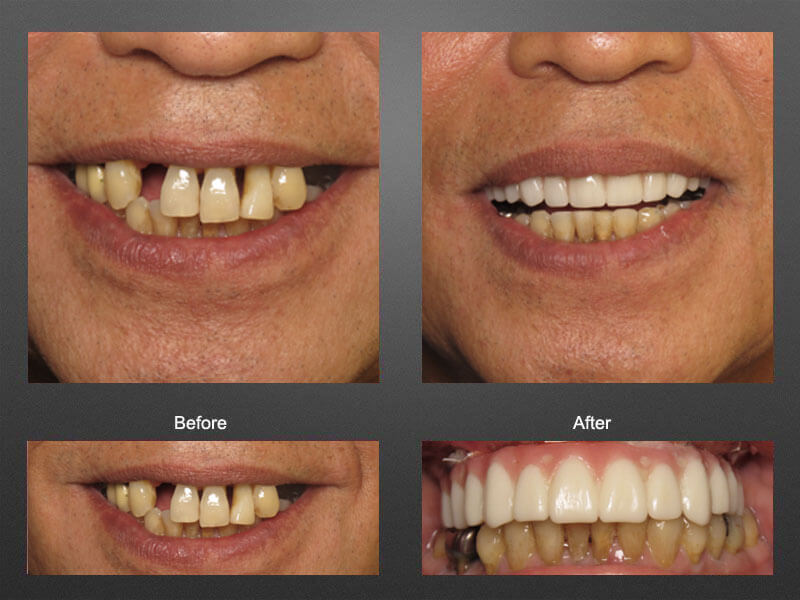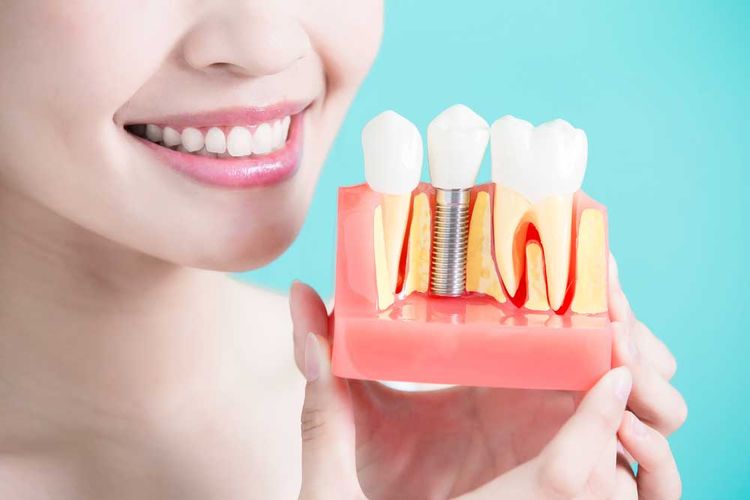Why would I have a dental implant?
A Dental implant is a surgical procedure to replace missing or damaged teeth with artificial teeth. The artificial teeth will look and function like the real ones. This procedure is sometimes considered as better alternatives to dentures or bridgework. Dental implants may be the right option for you if you have one or more missing teeth.

What are the benefits of having a dental implant?
Besides its purpose to replace damaged or missing teeth, dental implants have numerous specific benefits. These include:
- Enables natural speech. Unlike dentures, dental implants won’t make you mumble or slur your words.
- Improves your appearance. You can regain your beautiful smile back.
- It looks and feels like your own teeth.
- Comfortable and convenient as it will not slip inside your mouth.
- It makes eating easier.
- Improves oral health and supports adjacent teeth.
- Easy to care for since you don’t need any special care.
- Durable and permanent because dental implants are designed to last a lifetime.
- Improves your self-esteem as it gives back your smile.
What is the recovery time?
There is no specific recovery timeline for dental implants. The recovery period is based on your unique condition. In general, you need to rest as much as possible for several days. It may take several weeks to get used to the feel and the shape of the implant.
How long will I need to stay in the hospital after my procedure?
Dental implants are done in several stages in separate appointments. After each appointment, you should be able to leave the hospital/clinic immediately. Each appointment may take around one to two hours.
How long should I expect to stay overseas after my procedure?
Since dental implants are done in several appointments, you may need to stay overseas for about 2 weeks. During this period, you will attend a number of appointments as well as follow-up checkups.
What aftercare should I take into consideration?
Dental implants do not require any special care. However, you do have to practice good oral hygiene to maintain the implants as well as your remaining natural teeth. Brush your teeth twice a day, floss daily, and rinse your mouth with an antiseptic mouthwash. You also need to schedule regular dental check-ups with your local dentist to ensure the health and the proper functioning of the implants.
What’s the success rate like?
Dental implants have a high success rate of around 95%. However, there are some side effects and complications that can occur, including implant failure, injured jawline, infection, bleeding, bruising, and swelling.

Are there alternatives?
If you are not a good candidate for dental implants, mini dental implants can be an option. Other alternatives for dental implants are same-day dental implants and all-on-4.

